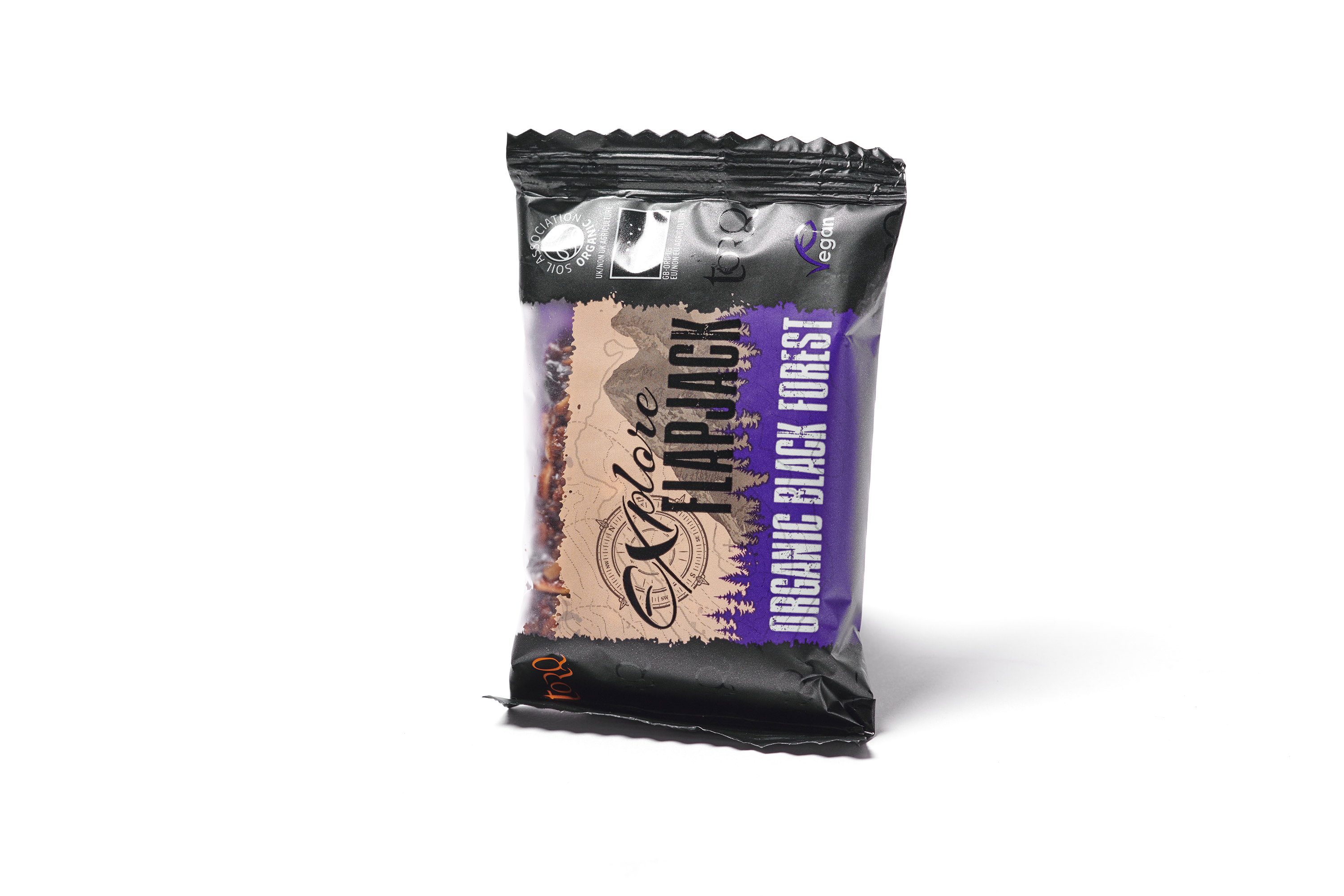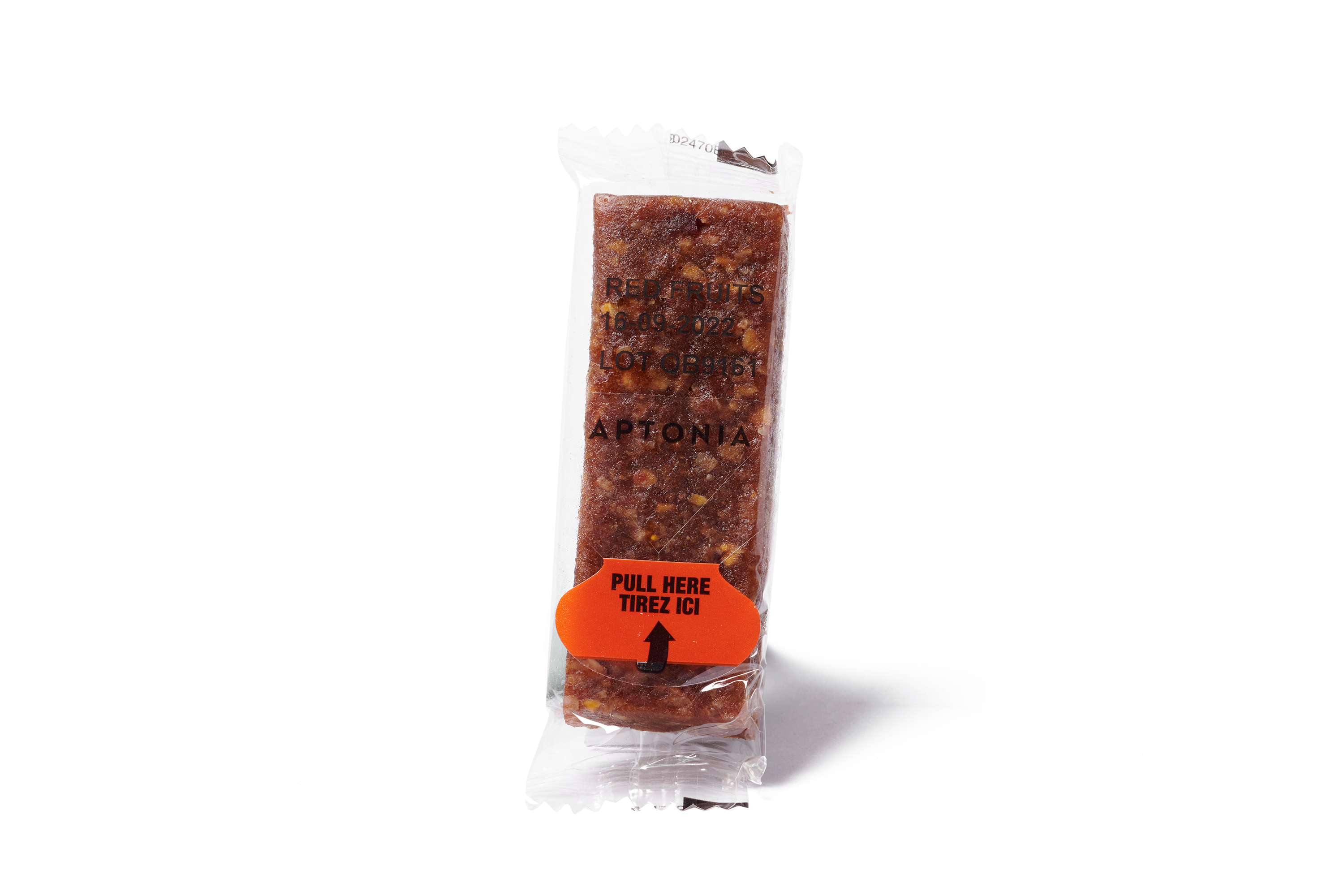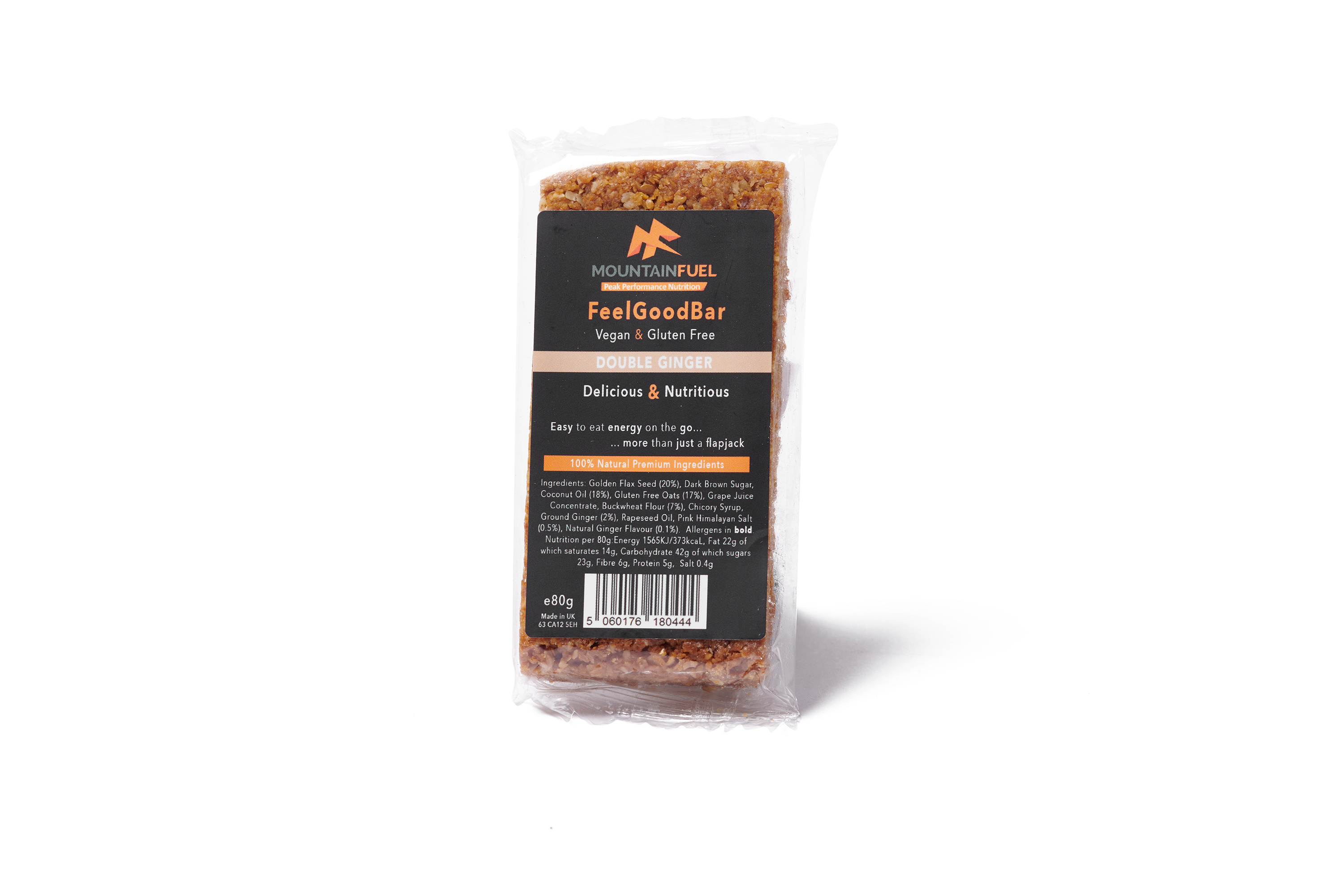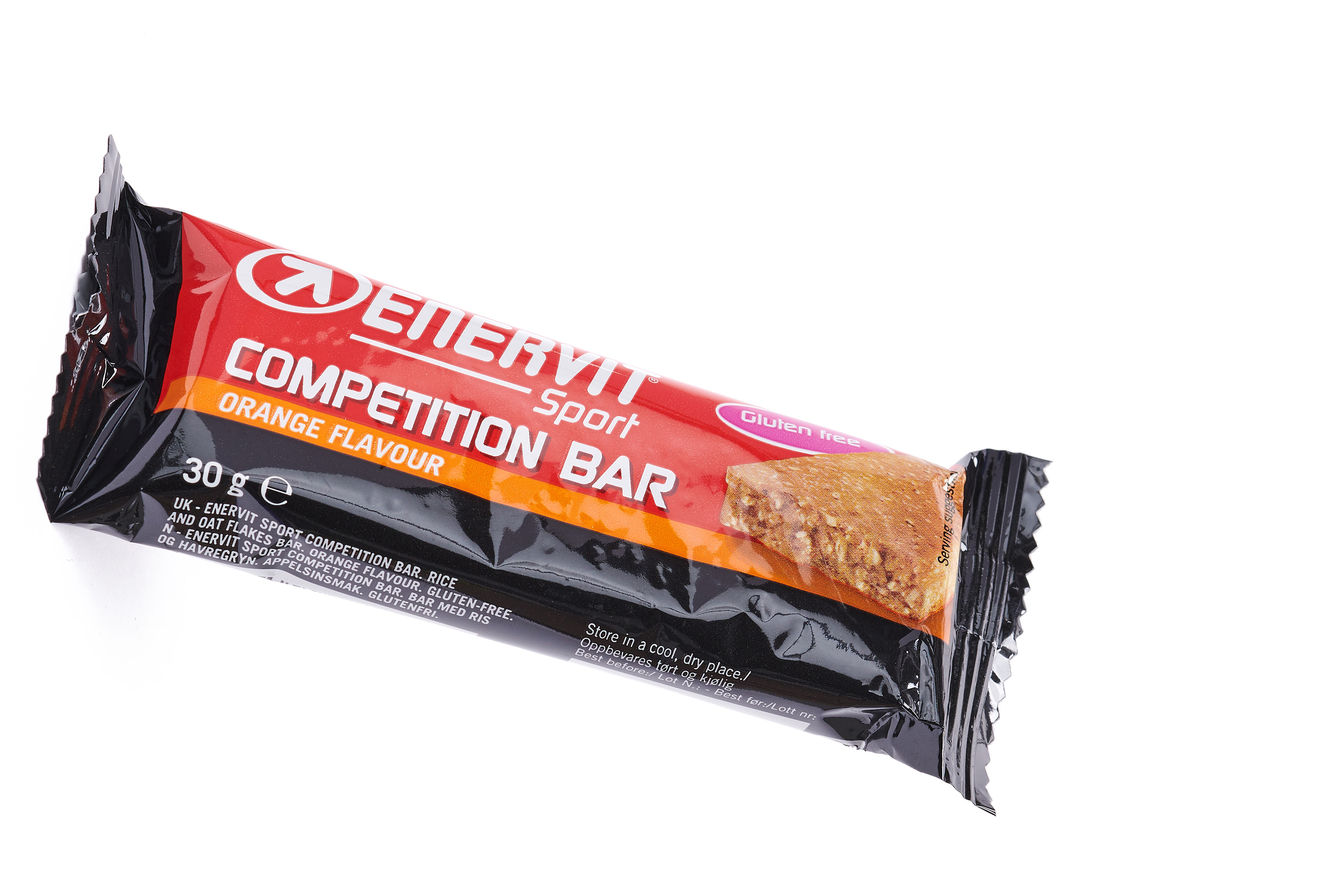Best energy bars: 12 reviewed, tested and rated
Energy bars are a key aspect of a triathlete's fuelling strategy. James Witts tests the best in the industry to give you his verdict...

Energy bars generally aren’t needed for up to around 75-90mins of training. After that time, however, they become essential, especially if you’re not a fan of energy gels.
That’s because your glucose and glycogen (how glucose is stored in the body) will be running low and you’ll need a top up.
How much you can tolerate’s highly individual but, as a benchmark, you’re looking at around 60g carbs an hour. Any more and your stomach might start playing (bad) tricks.
As for when you should turn to the bar, we generally keep to the bike leg of a triathlon. Its weight-bearing nature prevents your stomach flying up and down, while the chance to freewheel at times lowers intensity.
Both make it a calmer environment for your stomach to digest, absorb, and assimilate nutrients. That being said, the endurance runners among us will need to supplement gels with bars to maintain energy reserves.
And remember there’s always the complimentary homemade energy bar option, especially over Ironman where flavour fatigue is common. You can find recipes for homemade energy bars here.
Right, time to serve up a new PB…
Best energy bars for triathletes in 2024
Rawvelo Organic Energy Bar

- £10.69 for 5
Rawvelo, as the name suggests, pride themselves on using organic and natural foods. And it shows in the ingredients list.
Take the chocolate and orange option as an example, which is made up of just Deglet Noor dates, ground almonds, raw cocoa powder, maple syrup, vanilla extract, orange oil and sea salt.
That goes a long way to justifying the roughly £2 a bar price tag, of which contains 197cals from 24.2g carbs, 8.4g fat and 4.7g protein.
Much of those carbs derive from the dates, so are relatively slow releasing, while the good fats stem from the almonds. Those almonds also deliver muscle-repairing protein.
It’s a good macronutrient mix and the taste is good, but they could do with a hint more moisture. They’re also vegan friendly.
Verdict: Tasty, nutrient-packed bar, albeit a little more moisture needed.
Score: 78%
High5 Energy Bar with Protein

- £19.99 for 12
This is the only bar here that sells itself as a protein energy bar. How does that work, you might ask, given protein’s primary role in exercise recovery.
Well, studies show that a modicum of protein consumed during exercise can actually accelerate recovery once finished.
The payback is that protein can (slightly) impair carbohydrate metabolism, which isn’t great when you’re crying out for energy.
As this bar contains only 19g carbs and a pretty hefty 10g protein (plus 10g fat for a 212kcal total), there’s an argument this is actually more a recovery than energy bar.
What’s clearer is that it’s suitable for vegans with pea protein replacing traditional whey. As for taste, it’s passable.
Verdict: Good value at £1.67 a bar, but the rest is moderate
Score: 76%
Skratch Labs Anytime Energy Bar

- £29.95 for 12
Dr Allen Lim is the brains behind Skratch Labs. He’s also co-writer of one of our go-to nutrition books, Feed Zone Portables, which is packed with homemade sweet-and-savoury recipes for on-the-fly feeding.
One of the benefits of homemade efforts over commercial offerings is moisture content, but that’s not an issue in the chocolate chip and almond flavour bar on test thanks to the addition of cranberries, plus the nut-and-seed butter blend.
Calorie content’s 220kcals, comprised of 33g carbs, 8g fat and 4g protein. Hence, its ‘anytime’ moniker although it’s digested easily during exercise.
It’s tasty enough, but you can taste the salt from the addition of 125mg of sodium, which could be ideal in the heat.
Verdict: Moist, tasty bar that could be ideal for hot races
Score: 80%
Torq Expore Flapjack

- £37 for 20
Typically Torq, this black-forest flapjack is free from artificial colours, sweeteners and preservatives. It’s also incredibly tasty, its sweetness deriving from organic golden syrup, raisins and dark brown sugar.
That sugar hit (43g carbs) cranks this bar up to 263cals with fat count at 8.1g, predominantly down to sunflower oil (organic, of course), which is high in inflammatory omega-6 – not great when training hard.
Then again, these are designed for either the generally lower-intensity bike or a pre-workout snack. You can consume post-effort, too, but the muscle-repairing protein content’s only around 13cals (3.2g).
Its buttery taste and texture (from the oil) borders on overly oily, which might be too rich for some. torqfitness.co.uk
Verdict: Impressive bar that balances good taste and nutrition
Score: 85%
Styrkr Rice Bar
- £29.99 for 12
First things first, that name. It’s pronounced ‘stir-kuh’ and means strength in Old Norse, albeit this is a British brand who’re looking to grab a slice of the sport nutrition market. And they’ve made a good start with this rather tasty rice bar.
We tested the apple, cinnamon, caramel and sultana combo, which delivered a sweet hit without being too sharp. The soft, chewy texture is appreciated when a couple hours into a ride. Unlike some bars, it’s not dry ensuring smooth transition from mouth to gullet.
Each bar delivers a hefty 294cals, of which 57.2g comes from carbs and only 6.2g from fat. That’s a pretty good split for such a high-energy morsel.
The only moot point is the lengthy ingredients list. In our experience, brevity often equals healthier.
Verdict: Impressive bar that tastes good and delivers a high-energy burst.
Score: 80%
Aptonia Eco-size Energy Bars

- £6.99 for 10
Sports-retail behemoths Decathlon’s renowned for packing in many a bargain into their global stores. As we see here with 10 ‘eco-sized’ bars that hit the tills at just £6.99.
So, marks scored for frugality. But what about taste and texture? Actually, they’re not bad, the 69% date composition making them decidedly palatable.
Then again, at this price, we’re not talking healthy chunks of date. Instead, it’s date paste, which is heavy on the corn oil.
As the ‘eco-size’ tag infers, it’s also the lightest calorie-wise with 136kcals from each 40g bar. Around 26g derives from carbs, with protein making up 1.3g and fat 2.4g. That’s a proper good energy split for higher-intensity moments.
Verdict: value-packed bar with understandable nutritional compromises
Score: 80%
Mountain Fuel Feel Good Bar

- £2.30
Mountain Fuel might be new to you, but they’ve made great strides in the world of ultra-running, the highlight of which came when trail-running god Kilian Jornet was reported as buying their products.
And we can see why with this ‘double-ginger’ flapjack. It’s delicious, and delivers an appreciated ginger hit via ground ginger and natural ginger flavouring.
It was particularly appreciated on long winter rides and runs, stimulating a feeling of warmth in the cold, foggy air.
Mind you, it’s a calorific beast, containing 373kcals from 42g carbs, 22g fat and 5g protein. Like many here, that ticks the long-course boxes but arguably too much for Olympic-distance. Still, it’s a bar loaded with goodness.
Verdict: Delicious, warming bar but a meal in itself
Score: 81%
Chia Charge

- £2.25
I remember years ago, when chia seeds were seemingly sprinkled everywhere, dropping chia seeds into water as per instructions.
The super-seeds expanded into pale spawn and it was disgusting. Thankfully, the same can’t be said for this tasty flapjack, which delivers chia’s mooted energy-boosting and antioxidant properties in a mix of oats and salted caramel.
This combination, plus demerara sugar, golden syrup and butter, cranks up calorie count to a whopping 378.
Arguably, that’s good for ultra-racing and if you’re a very heavy trainer but, for most, that’s too extreme when this is considered a snack.
Then again, many of you will be able to consume this amount of calories per hour when riding, though just remember 22g (around 198kcals) of that’s from fats with 44g (around 156kcals) from carbs.
Verdict: Big flavour, big calories, moderate price; one for ultras
Score: 77%
OTE Anytime Bar

- £1.40
British outfit OTE has kept things like nanna used to make with this traditional flapjack.
Around 46%’s made up of glutenfree oats, which heavily contribute to the 37.2g carbs nestling within each 62g bar. A further 8.2g fat and 3.8g protein contribute to the overall package of 248.9kcals.
That figure and macronutrient breakdown’s similar to more conventional energy bars where the focus is on slow- and fast-releasing carbs (from those oats and golden syrup) over fats and protein.
This is silkier than the last OTE Anytime Bar we tested. That was a vegan number, and the vegetable oil just couldn’t match the buttery joy here.
The only criticism is the raspberry and white chocolate flavour, which just didn’t float our boat. Then again, I’m not a huge fan of raspberries so will refrain from dropping marks. Price is good, too.
Verdict: Tempting bar for snacking, and pretty good for exercise
Score: 81%
Enervit Sport Lemon Cream

- £2.20
This bar is such an outlier in this test that it’s akin to us lining up in the elite men’s triathlon at the Olympics. It’s out of place.
In times gone by the push for scientific breakthrough came at the expense of the two essentials: flavour and texture.
It seems that Enervit Sport’s stuck in the 2000s with its compressed, powdery formulation. Moisture’s absent and the lemon-cream hit helps make this the most artificial tasting bar on test. (There’s also a cocoa flavour that’s marginally tastier).
On the positive, it comes as a double bar for more manageable consumption and each double bar delivers 36g carbs and just 3.6g fat so, on paper, this is a good pick for higherintensity, shorter distances.
Verdict: Perfect for high-intensity efforts. Shame about the rest.
Score: 61%
Enervit Competition

Enervit fuelled Tour de France champion Tadej Pogacar, the Italian company providing the Slovenian with the full gamut of products from energy powders to gels and bars.
Did he consume this, Enervit’s Competition Bar? Probably, but this is the least tasty bar on test. Yes, it’s a nice hint of orange, that citrus twang sharp enough to cut through any flavour fatigue.
The problem is the texture, which is a touch old-school dryness for our liking. Okay, maybe not the Weetabix-alike specimens of times gone by, but not the smooth delivery we’ve come to anticipate of the contemporary bar.
Maybe that’s why it’s recommended to ‘eat one bar with an appropriate quantity of water’. On the positive, this is a fast-acting race-focused morsel with 23g from carbs and less than a gramme from fat.
Verdict: Good for racing but better bars out there
Score: 65%
High5 Slow Release

High5 has established a reputation for serving up delicious energy bars at a good price. And they’ve achieved that balancing act once again with this parcel of apricot joy.
On face value, anyway. You see, while the others on test are more expensive, their energy content is significantly higher than the 151 calories seen here. Short changed? Partly.
While the fatty hit of 4.7g is much lower than seen in the Torq and OTE bars on the left, so is the 23g of carbohydrates.
In short, they’re not like for like; in fact, this is a bar designed to consume solely for training and racing, providing a nice mix of slow- and fast-releasing sugars thanks to both the dried fruit and the addition of isomaltulose, which has a lower GI rating than glucose and sucrose.
Verdict: focused high-intensity remit and a good price
Score: 82%
Overall verdict
After the test period, beyond bordering on developing diabetes, it became clear just how much tastier ‘sports’ bars are in 2022 compared to 2002.
All the sports science in the world is made redundant if taste and texture’s repellent. Then again, science has a role, and shows that some of these bars are better for recovery (and snacking) and some for on-thebike and run fuelling.
When it comes to the former, we hone in on morsels that have higher protein content. Protein’s the building blocks of muscle (among its many roles) with much research showing a 20g post-exercise protein hit is optimum.
None of the bars reach those heights, with Veloforte and High5 peaking at 10g. If cost is no option, we’d go for the natural Veloforte over the High5.
That said, we’d choose Tribe’s offering over both. It’s so much tastier than the last Tribe bar we tried and good for snacking and recovery.
When it comes to on-bike fuelling, Torq’s black-forest effort heads down the finish chute first, its 43g carbs delivered in a tasty package.
Hats off, too, to Mountain Fuel, despite its high calorie count we suggest grazing is better than consuming in one go.




